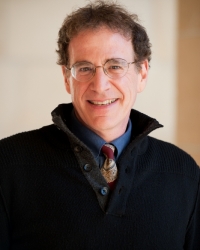
You are here
Wineburg, Sam
Academic Title
Other Titles
Margaret Jacks Professor of Education and (by courtesy) of History
Director, Stanford History Education Group
Contact Information
Admin. Support
Program Affiliations
Sam Wineburg's work engages questions of identity and history in modern society: how today's youth use the past to construct individual and collective identities. Over the last fifteen years his interests have spanned a wide terrain, from how adolescents and professional historians interpret primary sources to issues of teacher assessment and teacher community in the workplace. His book, Historical Thinking and Other Unnatural Acts, won the 2002 Frederic W. Ness Award from the Association of American Colleges and Universities for the book "that best illuminates the goals and practices of a contemporary liberal education." From 2007-2009 he was the Executive Director of the Department of Education's National Clearinghouse for History Education, a collaboration between George Mason University, Stanford, and the American Historical Association. With the late Roy N. Rosenzweig, he created the award-winning website, historicalthinkingmatters.org. He directs the Stanford History Education Group, a research and development outfit dedicated to improving history instruction in the US and abroad.
New forms of assessment to measure historical understanding
The creation of Web-based environments for the learning and teaching of history
Longitudinal study on the development of historical consciousness among adolescents in three communities
Quote
In its deepest forms, historical thinking is neither a natural process nor something that springs automatically from psychological development. Its achievement goes against the grain of how we ordinarily think, one of the reasons why it is much easier to learn names, dates and stories than it is to change the fundamental mental structures we use to grasp the meaning of the past . . . . Mature historical knowing teaches us to go beyond our own image, to go beyond our brief life, and to go beyond the fleeting moment in human history into which we've been born. History educates ("leads outward" in Latin) in the deepest sense. Of the subjects in the secular curriculum it does the best in teaching those virtues once reserved for theology - the virtue of humility, in the face of our limits to know; and the virtue of awe, in the face of the expanse of human history.
- from Historical Thinking and Other Unnatural Acts: Charting the Future of Teaching the Past (Temple University Press, 2001)
Education
- Stanford, Ph.D., Psychological Studies in Education
- University of California/Berkeley, BA, History of Religion, summa cum laude
- Brown University
Time at Stanford
Since 2002
Professional Experience
1989-2002- Assistant Professor to Professor, Educational Psychology, & Professor of History, Univ. of Washington
1997-98 Visiting Professor, University of Haifa
1981-1985- middle school/ high school teacher in a variety of public and parochial settings
Courses Taught
- Teaching History/Social Studies (Ed 268)
- History, Memory, and Identity (Ed 356x)
- Scholarly Writing in Education & the Social Sciences (Ed 385x)
- Howard Zinn and the Search for Historical Truth (Ed 105C --freshman seminar)
- Qualitative Research Methods in Education (Ed 250C)
Recent Publications
Historical Thinking and Other Unnatural Acts: Charting the Future of Teaching the Past (Philadelphia: Temple, 2001),
Reading Like a Historian: Teaching Literacy in Middle and High School Classrooms (New York: TC Press, 2011)
Knowing, Teaching, and Learning History: National and International Perspectives (with Peter Stearns and Peter Seixas) (New York: NYU, 2001);
"Toward a theory of teacher community." Teachers College Record, 103 (6), 942-1012, 2001 (with Pam Grossman & Steve Woolworth);
"Crazy for History." Journal of American History, March 2004.
"Goodbye Columbus: A New Survey Upends Conventional Wisdom about Who Counts in American History"
"Beyond the bubble: New history/social studies assessments for the Common Core." Phi Delta Kappan (Forthcoming) (with J. Breakstone and M. Smith).
Current Activities
Member, Editorial Board, Cognition and Instruction, Journal of the Learning Sciences
Member, Advisory Board, National Research Council Committee, How People Learn, Targeted Report for Teachers
Member, Advisory Board, American Hebrew Academy, Greensboro, North Carolina
Member, Advisory Board, Center for the Study of Historical Consciousness, Univ. of British Columbia, Vancouver, BC
Trustee, National Council for History Education (NCHE)
Consultant, Mandel Foundation, Jerusalem


